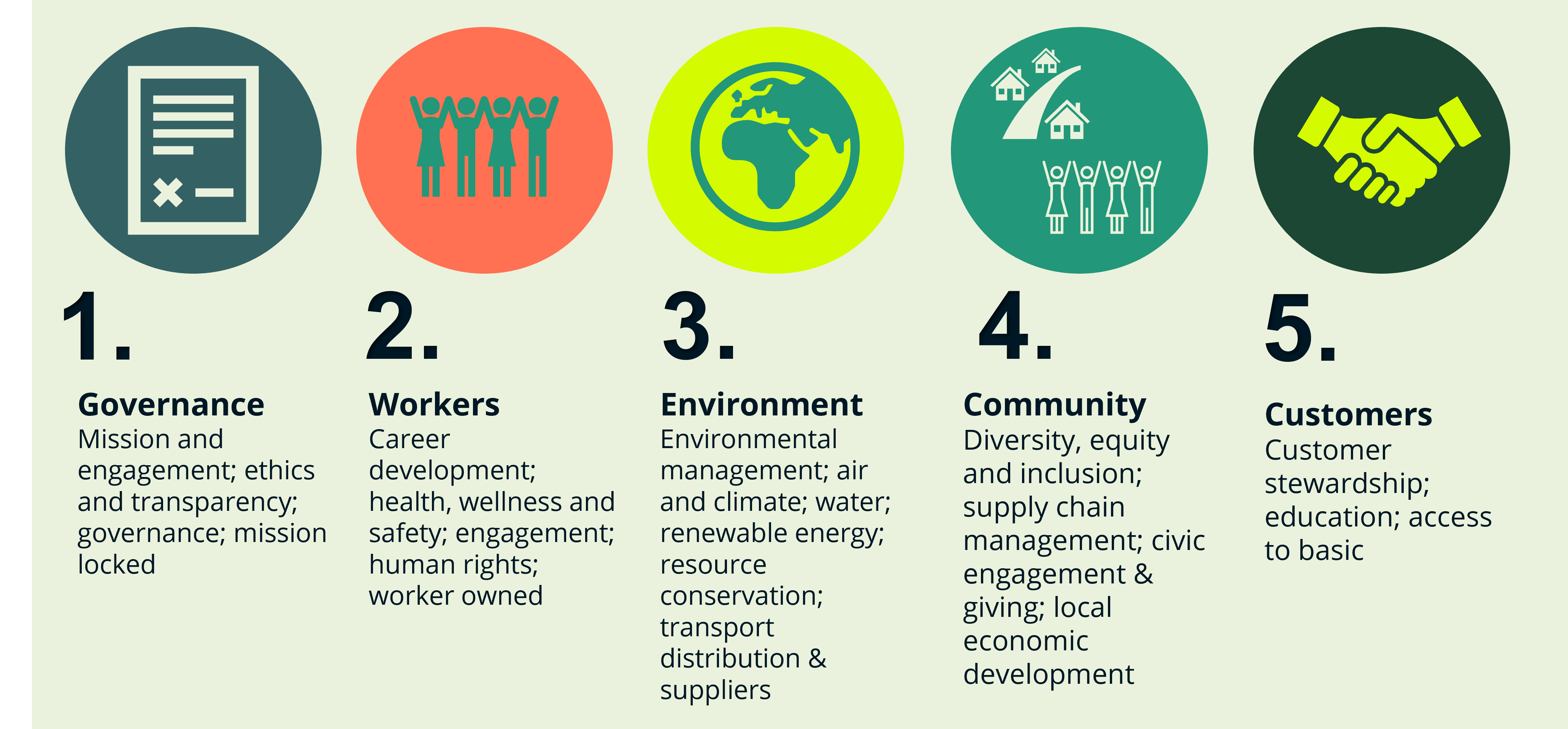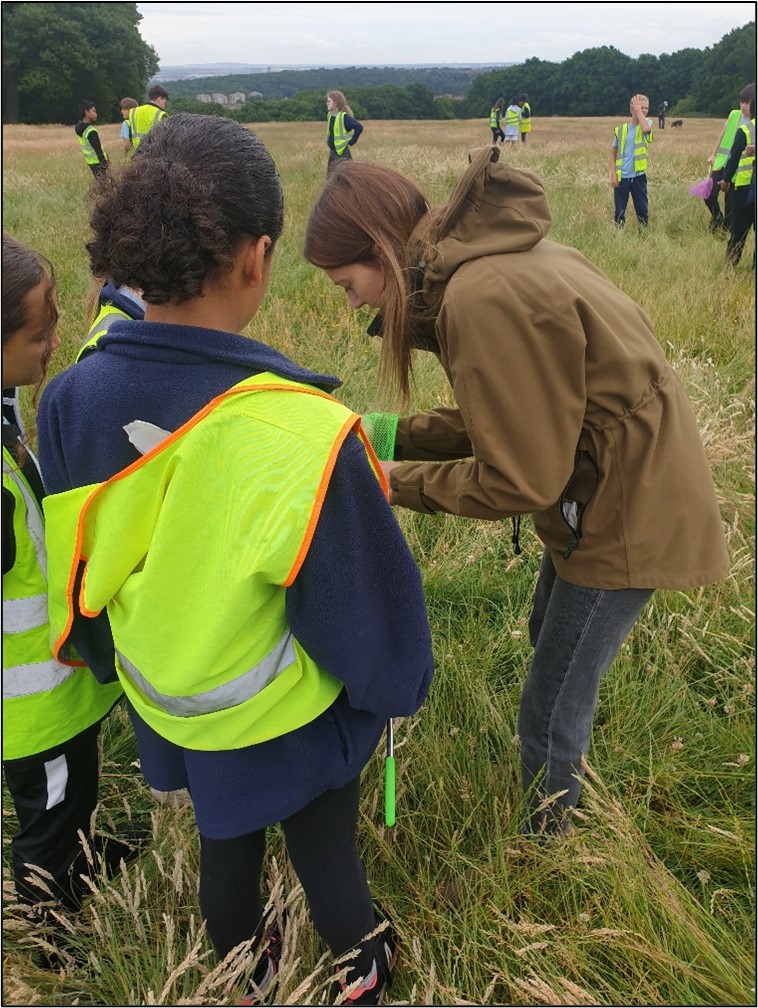How did we become a B Corp? What did we do?
Becoming a B Corp is a process and then you continue to behave as one, so it is transformative. The first task is understanding what it is, what it entails, and ensuring it is an agreed business priority. For us, this was relatively straight forward because of our purpose and strategic objectives.
The process involved adding our company details and completing the self-assessment using the online tool, rating our performance against the questions in the five categories Governance, Workers, Community, Environment, and Customer.

B Lab recognises that some businesses, like ours, are impactful, “any company that has an Impact Business Model is uncommon and extraordinary”, which is reflected in the scoring methodology.
At that initial assessment stage, we scored well over the 80 marks required, and so entered the evaluation stage, where a B Lab assessor reviews our submission.
Then followed the Verification stage, where our score was fully validated and adjusted through interviews, and evidence review. After which we were certified, with a final score of 94.2.
For us, the process took 12 months, but that was impacted by demand and B Lab assessor availability, and it would probably be quicker now. Our direct time involvement was around 3 months.
What does the scoring mean?
B Lab estimates that the ‘average’ UK business would score around 50 points.
To be B Corp certified you need to achieve a minimum of 80.
There is a theoretical maximum of 200 points, but that isn’t really the point because the score available changes depending on your business context. Our main takeaway from the score is that it gives your business a baseline against which you can continually improve.
What does it mean to Temple?
B Lab recognises that some businesses are impactful “any company that has an Impact Business Model is uncommon and extraordinary”. Temple is classified as an impact business model because the majority of our services are directly related to managing impact on the environment and society.
Becoming a certified B Corp is a great achievement that validates our purpose and impact business model, and it’s really nice to get recognition from an independent source that we meet the highest verified standards of social and environmental performance, public transparency, and legal accountability.
It commits us to performance transparency, both at our current level and against our improvement goals.
Together we believe that recognition and transparency provide our stakeholders with a greater level of insight and assurance about our business.
Alongside that we are now part of the movement, meaning that we can collectively achieve more. We believe that sustainability is not a race or something a business ‘wins’ at. That we can support this movement is a positive step and aligns with our business purpose
What does it mean for our sustainability strategy?
It is a complementary approach that helps us to deliver our strategy, but not the end goal. In practice, it will help with embedding our purpose and impact business model, encourage greater transparency, and helps us identify and act on areas for improvement.


